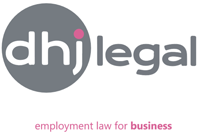Harassment and Disability Discrimination in the Workplace
ACAS considers workplace bullying and harassment a widespread problem in the UK with serious implications for employees and businesses alike. Employers are encouraged to have a policy and to establish a culture of trust where anyone experiencing or witnessing bullying or harassment has the confidence in their employer to raise the issue knowing it will be dealt with sensitively and without delay. Standards of behaviour should be developed and regularly promoted.
No employee wants to be the victim of harassment and no employer wants to be accused of harassment either. But to what extent is the context of the allegations and the culture of the office relevant when seeking to defend a harassment claim?
In the recent case of Evans v Xactly Corporation Ltd, Mr Evans was dismissed from his employment as a Xactly sales rep after less than a year because he made no sales and was unable to take guidance or acknowledge his poor performance. He brought a claim to the employment tribunal alleging breaches of the Equality Act. He claimed he had been called offensive names particularly a “fat ginger pikey” and a “salad dodger”. He said he had a connection to a protected group, namely the traveller community, and that he was discriminated against because he was diabetic.
The tribunal found that he was an active participant in the office culture. He was happy to use the “c” word and call his colleagues names, such as “fat paddy” and “pudding”. Furthermore, he did not react at the time to being called a “fat ginger pikey” and as no one present knew he had a connection to the traveller community, it was considered a random comment.
Whilst the employer accepted Mr Evans was disabled there was no medical evidence to support his case that his disability had caused his weight gain, and none of the employees apparently considered him to be fat.
The employment tribunal struggled to see how the comments could be offensive and commented that he had been an active participant in inappropriate comments and behaviour in the workplace, and referred to the case of Richmond Pharmacology v Dhaliwal in which the Court held that “Dignity is not necessarily violated by things said or done which are trivial or transitory, particularly where it should have been clear that any offence was unintended”.
All his claims were dismissed, and he recently lost an appeal to the EAT.
Employers should take care that banter doesn’t turn toxic. Given only very slightly different facts such offensive names could easily amount to harassment or disability discrimination. See the ACAS leaflet Bullying And Harassment At Work, which is available online.
